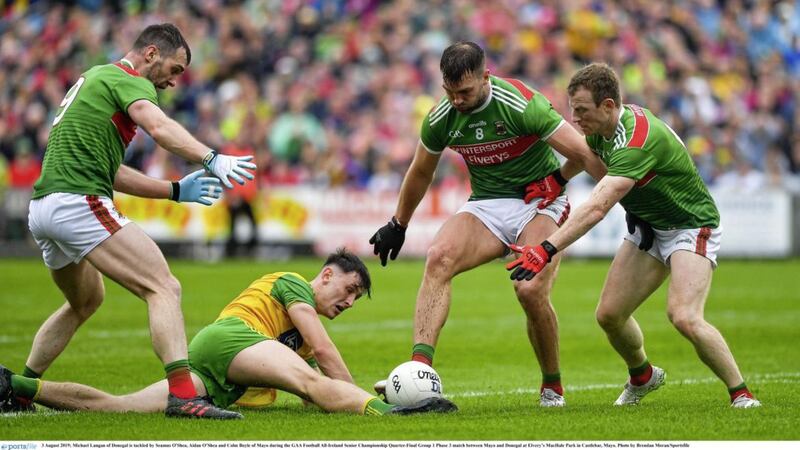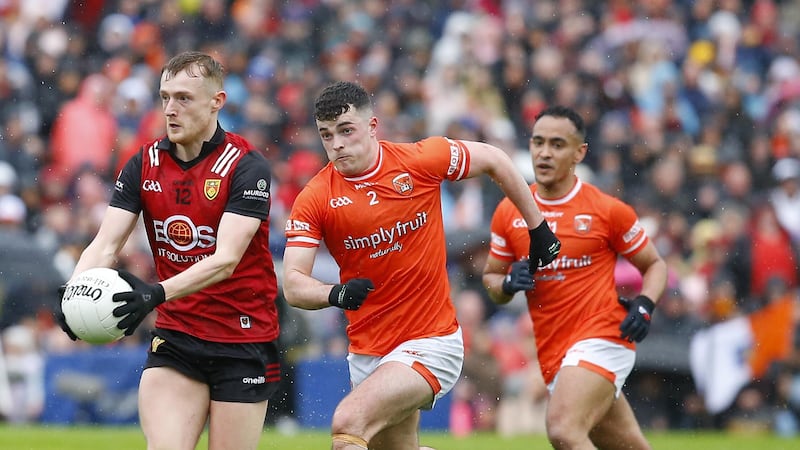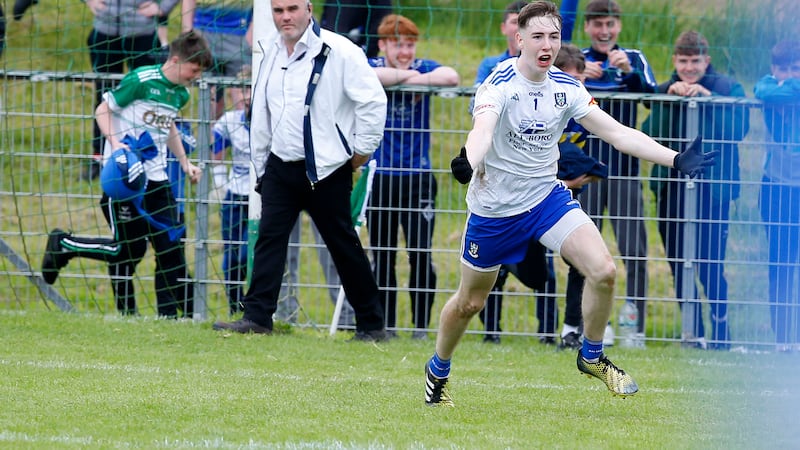IT was only very recently that I discovered our ancestral family nickname was once ‘the fighting Kanes’.
(We’re often called Kane, or else A’Kane, around home by virtue of colloquialism).
I’ve never known any of my relations to be fighters, and far from it.
There is, however, a deep argumentative streak running through us.
My father and my next oldest brother always fished. I only went a very odd day to get eating a feed of brandy balls.
At home one afternoon, they were debating something to do with the old rectory that they fished at near home.
On and on they went, for about an hour. Soon after it broke up, Da came out to the kitchen. I overheard him saying to my mother: “I realised about 10 minutes in I was wrong, but I argued on anyway.”
Me and the youngest brother, Seamus, once had a full 90-minute argument about whether water is ‘boiling’ or ‘boiled’ once the kettle clicks off. That was as big a waste of time as it sounds.
But that's how an argument with a fellow Kane goes. Because the other thing you must know is that we’re always right, even when we’re wrong.
Not in an ‘I know better than you’ way, but in a ‘this is what I think and there’s absolutely no chance of you changing my mind, no matter how wrong I am’ kind of way.
I have inherited the condition.
There is no known cure.
I tell you this so as to explain what’s to follow.
Rule changes in the GAA tend to evoke the Kane in people.
There is no middle ground. It’s either right, or it’s wrong. Usually, the latter.
Those that distrust the idea of rule changes tend to then oppose every single proposal, regardless of its merits.
It’s arguably more true of hurlers, who keep their game guarded in a glass vault surrounded by armed guards. You can look in and admire, but damned if you’ll be touching it.
And so in recent weeks, managers lined up one by one to knock the black card idea down.
On the floor of Congress, GPA representative Seamus Hickey squeezed the final breath from the notion.
“We polled 1,116 players from our championship squads - that's almost a 100 per cent response rate. 89 per cent of players were against this motion,” said the former Limerick defender.
David Hassan, chair of the GAA’s Standing Committee on Playing Rules, presented fairly solid evidence that the sport could do with tackling cynicism.
It is more rampant and widespread in hurling than it is in football, particularly when it comes to stopping goalscoring chances.
But it could not be more evident from both the GPA’s survey and the delegates’ 82 per cent rejection of the proposal that they’re happy out.
And you know what? That’s grand. Manys a man lived a full and happy life in self-denial.
In an era when hurling is at an exceptionally high peak in terms of skill, athleticism, excitement and overall competitiveness, it’d be fair for the hurling community to wonder what right anyone outside the glass has to tell those inside what to do.
Football was left to bear the brunt of Congress’s mechanisms. This year, there were 63 motions put forward.
History tells us that four or five big ones will be zoned in on in terms of public conversation, and that otherwise anything from the clubs will fail and anything from Central Council will pass or go very close.
The motion from Raheens club in Kildare to ban goalkeepers receiving a back-pass directly from the player receiving it went completely under the radar. Nobody in the hall spoke for it. Nobody spoke against it.
62 per cent of the hall voted to bring it in. And at the tap of a keypad, that’s it inscribed into the game in stone.
Does the new rule do much harm? Not really. It will, in the grand scheme, probably make a very minor improvement to the game.
It’s not so much the rule itself but the constant tinkering with football, as well as the actual decision-making process.
Congress itself is too big and unwieldy a body for anyone to try and keep control over. This column has long argued for it to be decommissioned, but if you accept that it has to exist in some form, then it should only be for major policy decisions, and held as and when it’s needed.
What we have is a sham democracy. The only views truly represented are those of the 250-odd people in the hall. Some of them are county treasurers or PROs or development officers.
They all have their own field of expertise, but is it really right to be asking these people to decide whether football should change its rules or not, and what changes it should make?
And that’s not to say that the players are always right either, for they all have their own biases.
I would cut the Standing Committee on Playing Rules some slack in the sense that their work is all very much evidence based, and none of the rule changes they’ve proposed have come without a filing cabinet worth of stats to back up the rationale.
But perhaps we’re at the point where less is more.
The SCPR has been focussed on trends, but the central trend in football over the last few years has been a shift towards a more fluid game that mixes the traditions of kicking with new-fangled angled running.
It has been a very good game in the last couple of years. The last two All-Ireland series’ in particular have produced some absolutely brilliant games. Prior to that, the gap is the issue, not the rules.
No amount of rule changes will lay down the drawbridge between the Dublins and Kerrys of the world and the Leitrims and Louths.
There is absolutely a need to have a rules committee in place, in case there needs to be change made. But it needs to be separate committees for football and hurling with the right people on them, and only stepping in when there’s something in desperate need of repair.
But for now, and for as long as Congress exists, football maybe needs to stop arguing among itself and start arguing against unpopular change.
Because as even us Kanes find out, you’re only right until you’re wrong.








